
Founder of Needs4Water
Asmahan Rabo
Water quality consultant with a background in technology management and water and wastewater certifications. Fluent in English, Swahili, and Somali, she specializes in humanitarian water interventions using ISO/IEC 17025 standards and QA/QC protocols.
Asmahan Rabo is a water quality consultant with a comprehensive background spanning over a decade in water quality analysis, assessment, and laboratory practices. Holding a Bachelor of Technology Management with a specialization in Chemical Technology and certifications in Water and Wastewater, Asmahan has acquired an array of skills and knowledge in the field. Her expertise is further solidified by a Master Certificate in Water Quality Assessment from the IHE Delft Institute for Water Education and a Humanitarian Water Engineering Certificate from the Dahdaleh Institute for Global Health Research at York University. This education has equipped her with the skills for designing, implementing, and evaluating water interventions in humanitarian contexts.
Asmahan's professional journey is marked by a unwavering commitment to enhancing water safety and reliability, especially in rural and underserved communities. Her fluency in English, Somali, and Kiswahili, combined with a residence permit in Ethiopia, positions her uniquely to contribute to water quality improvement efforts in East Africa and the Horn of Africa. Through her volunteer work, she has directly impacted these regions by testing water sources and providing critical feedback to local stakeholders.
Her technical proficiency encompasses a wide range of analytical skills, including proficiency in ISO/IEC 17025, QA/QC protocols, database maintenance, and reporting. Asmahan's experience spans various roles, including Laboratory Technician at a BNR Wastewater Class IV facility, Quality Control Technologist in the pharmaceutical industry, and extensive involvement in water quality analysis and monitoring. Her knowledge covers the entire process from raw influent to final effluent, including sampling, testing, and analysis of water and wastewater samples using advanced analytical instruments and techniques.
Throughout her career, Asmahan has demonstrated exceptional problem-solving abilities, conducting bench-scale and analytical tests to address complex issues. Her organizational skills have been instrumental in preparing technical reports, managing monthly inventories, and ensuring the timely completion of projects. Asmahan's career history includes significant roles at Needs4Water, the Alberta Capital Region Wastewater Commission, ALS Environmental, and Smith and Nephew, showcasing her versatility and dedication to water quality.
Asmahan Rabo's education and career reflect a relentless pursuit of excellence in water quality management and humanitarian engineering. Her work plays a vital role in improving public health and environmental sustainability. Through her commitment and expertise, Asmahan is making a significant impact on global efforts to achieve universal and equitable access to water and sanitation.
Needs4Water

Needs4Water specializes in water quality improvement for communities in crisis, utilizing expertise in international standards and advanced testing to enhance access to safe water and contribute to global water and sanitation efforts.

Featured Projects

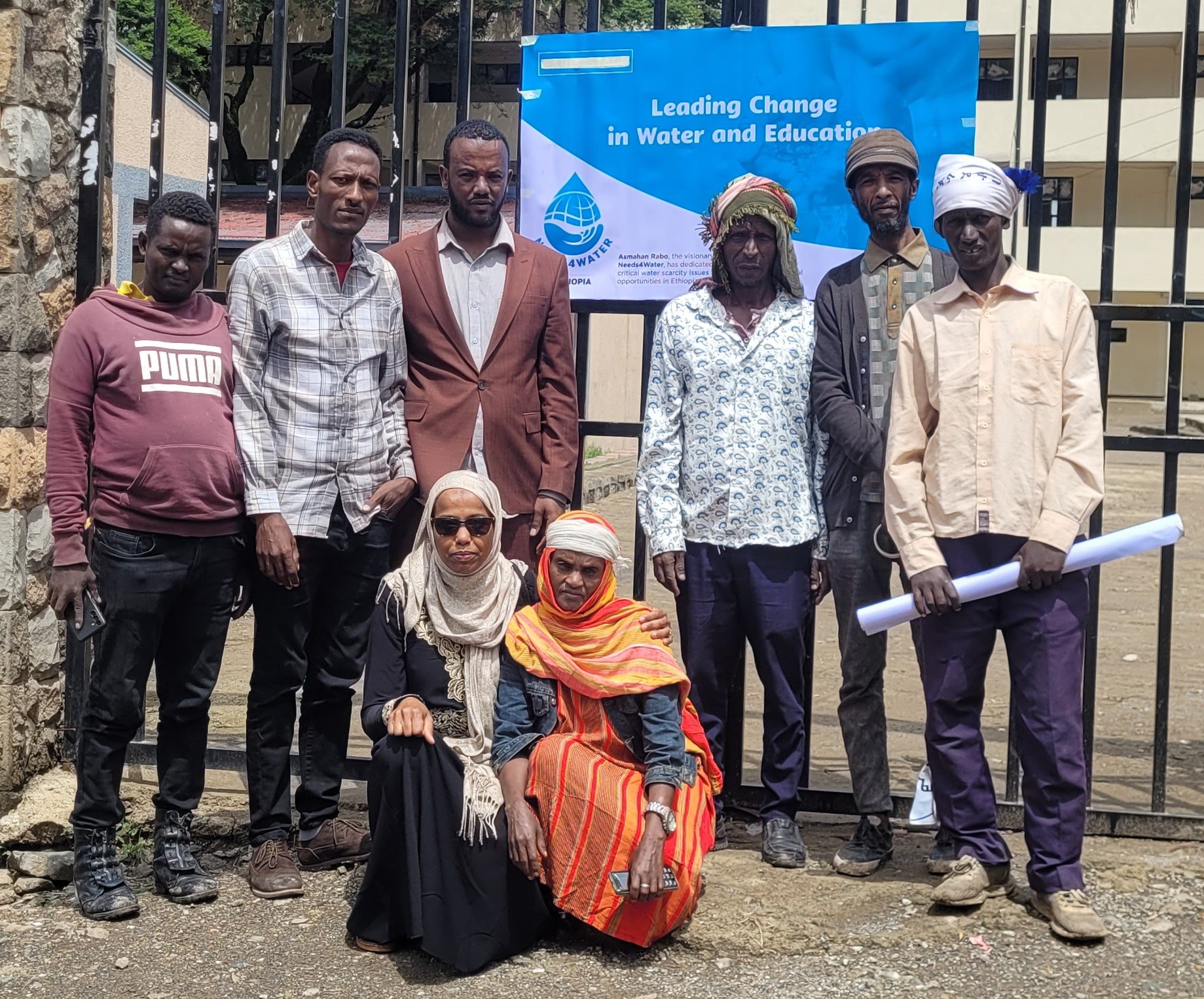
WASH Survey at the Jaarraa Abbaa Gadaa Primary School
As the pilot for a 25-school WASH initiative, Project 11 exposed unsafe water, failing toilets, and hygiene gaps at Jaarraa Abbaa Gadaa School—prompting urgent upgrades and student-led solutions.

Ethiopian Startup Awards
Hosted by GIIG, the Ministry of Labor and Skills, the Ministry of Innovation and Technology, and the Entrepreneurship Development Institute, the event highlighted the remarkable growth of Ethiopia’s entrepreneurial ecosystem.

Yeka Kindergarten and Elementary School
Empowering students at Yeka School, Addis Ababa, through English tutoring and WASH education, with community collaboration and survey integration during the Ethiopia 2025 WASH Survey.

Mwambao Kwale, Kenya
Water safety and risk assessment aimed at promoting safe water storage and hygiene to enhance community well-being.

Flooding Response in Huurshe, Somalia
Water source assessment and quality testing led to filtration system recommendations to enhance public health.

Garab Casse Jigjiga, Ethiopia
Water source assessment, quality testing, and community support.

Hargeisa Water Quality Control Laboratory
Water quality control laboratory enhancements elevate local expertise and sustainability practices.
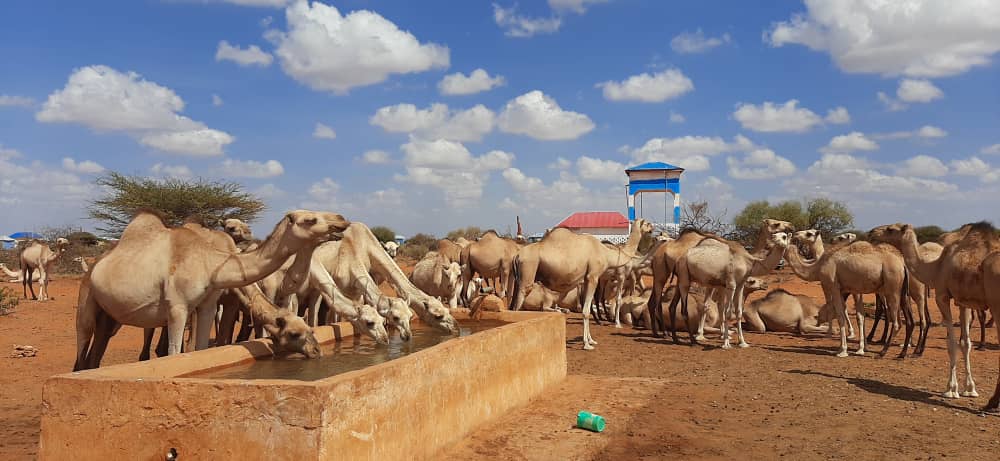
Dusmaley, Somalia
Water quality sampling and testing, leading to recommendations for enhancing water safety and public health through ongoing monitoring and education.

Tawakiri Island, Lake Victoria, Kenya
Collaboration focused on enhancing water safety through laboratory analysis, compliance monitoring, and SOP development for water handling, recommending cost-efficient portable testing kits to ensure community access to safe water.

Wasini Kwale, Kenya
Water safety and awareness, educating the community on water quality importance and recommending practices to maintain safety and mitigate health risks.

Longech Cold Chain, Lake Turkana
Collaboration focused on enhancing water safety through laboratory analysis, compliance monitoring, and SOP development for water handling, recommending cost-efficient portable testing kits to ensure community access to safe water.
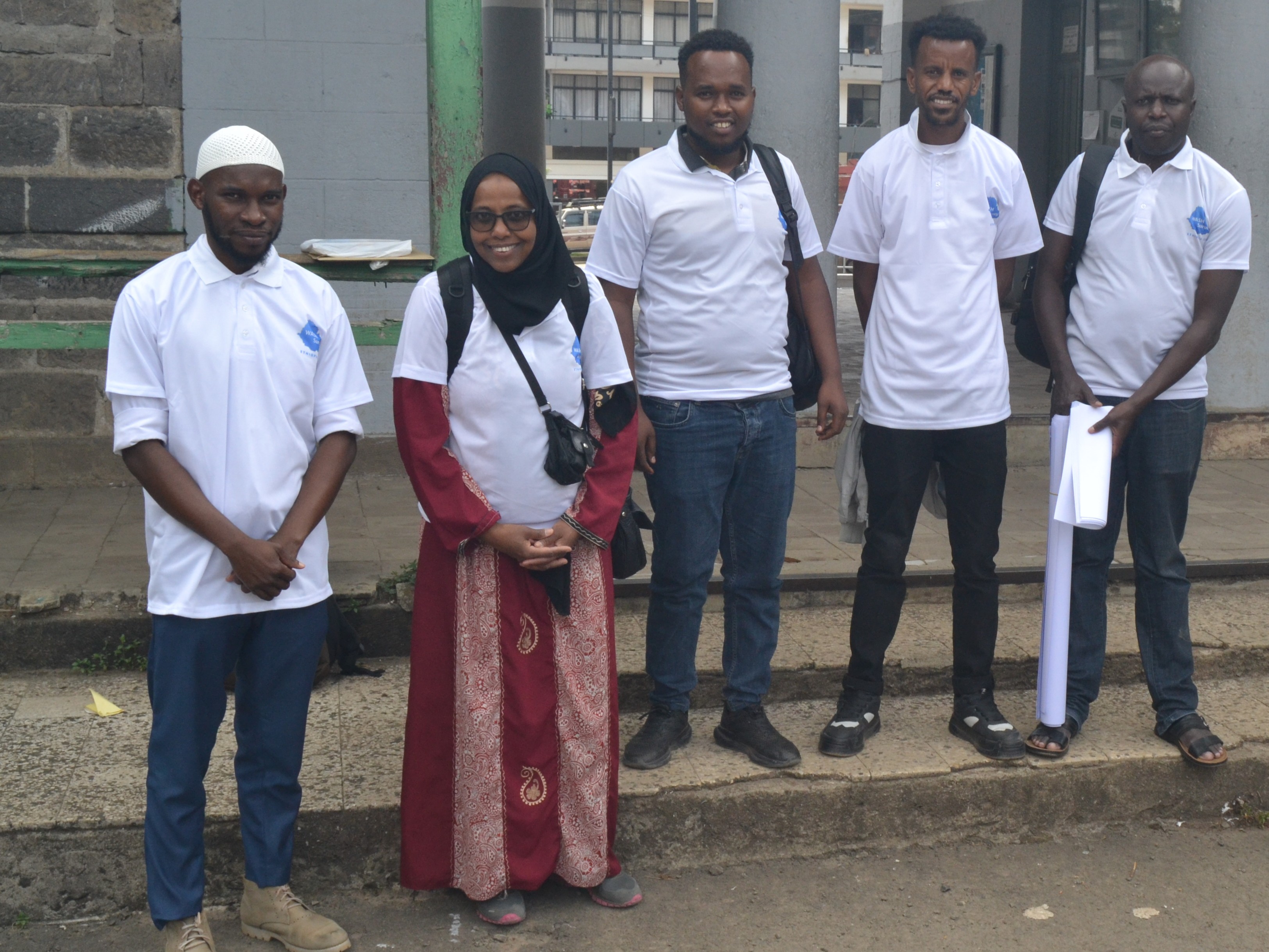
Menelik II Secondary School
Project 12 launched at Menelik II School, Ethiopia’s first modern school, collecting WASH data to improve hygiene, water, and sanitation for over 2,260 students.
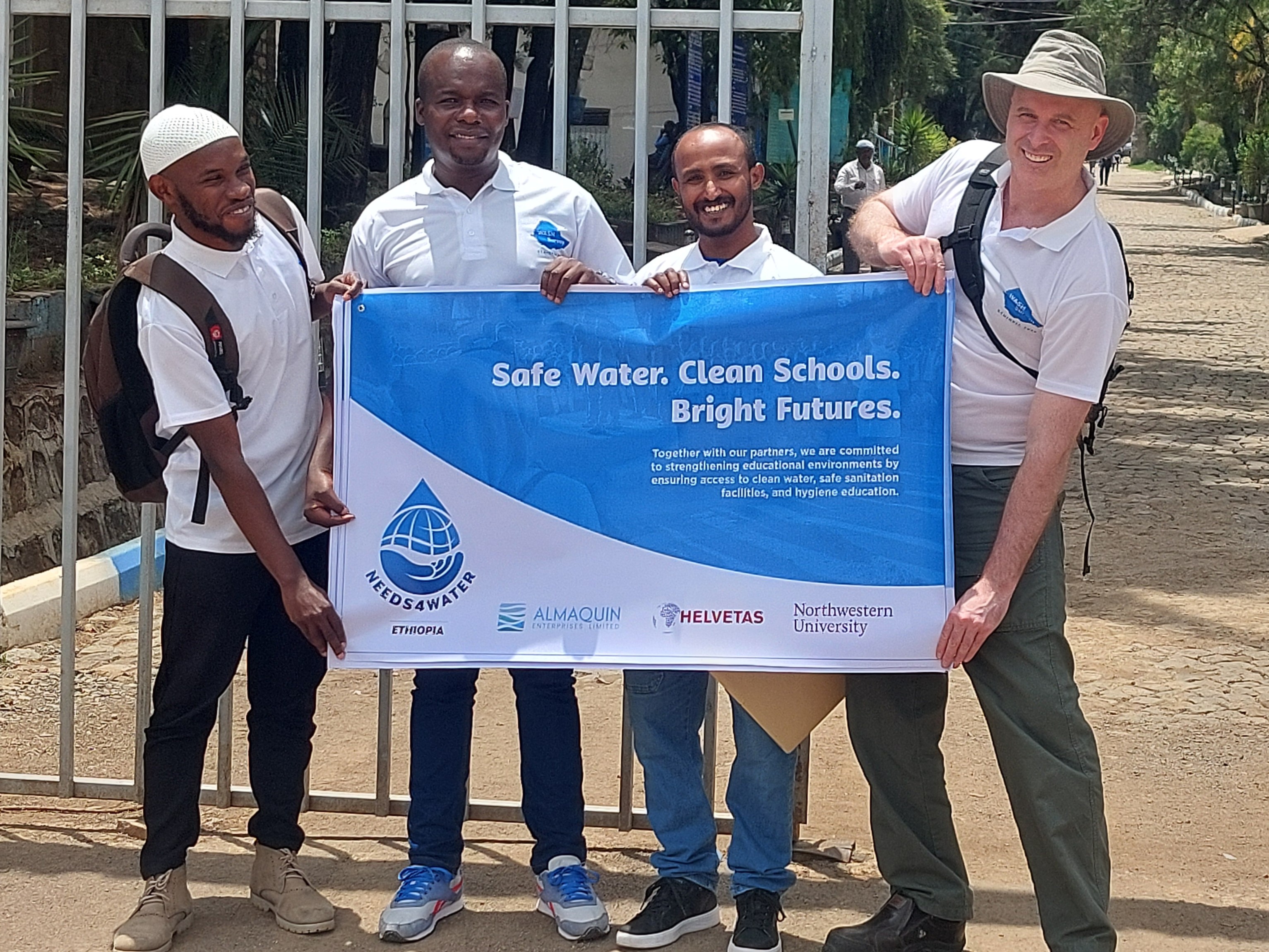
Kokebe Tsibah Secondary and Preparatory School
At Kokebe Tsibah School, Needs4Water gathered student insights and tested water quality to guide scalable WASH solutions as part of Ethiopia’s nationwide Project 12 survey.
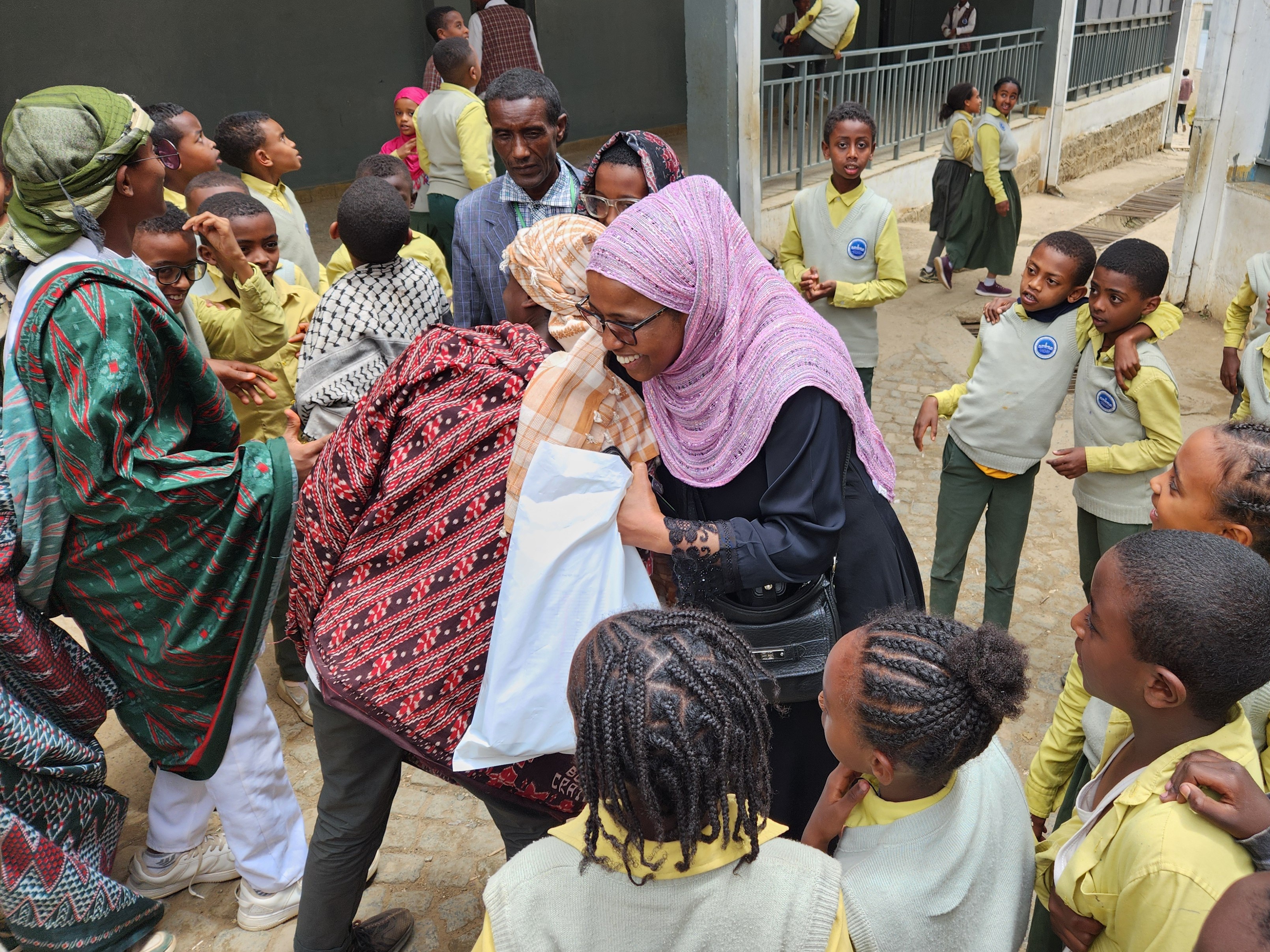
Eyerusalem Primary School
Eyerusalem Primary School supported Project 12 with WASH data collection and water testing, guiding improvements for nearly 1,500 students and contributing to national school sanitation insights.
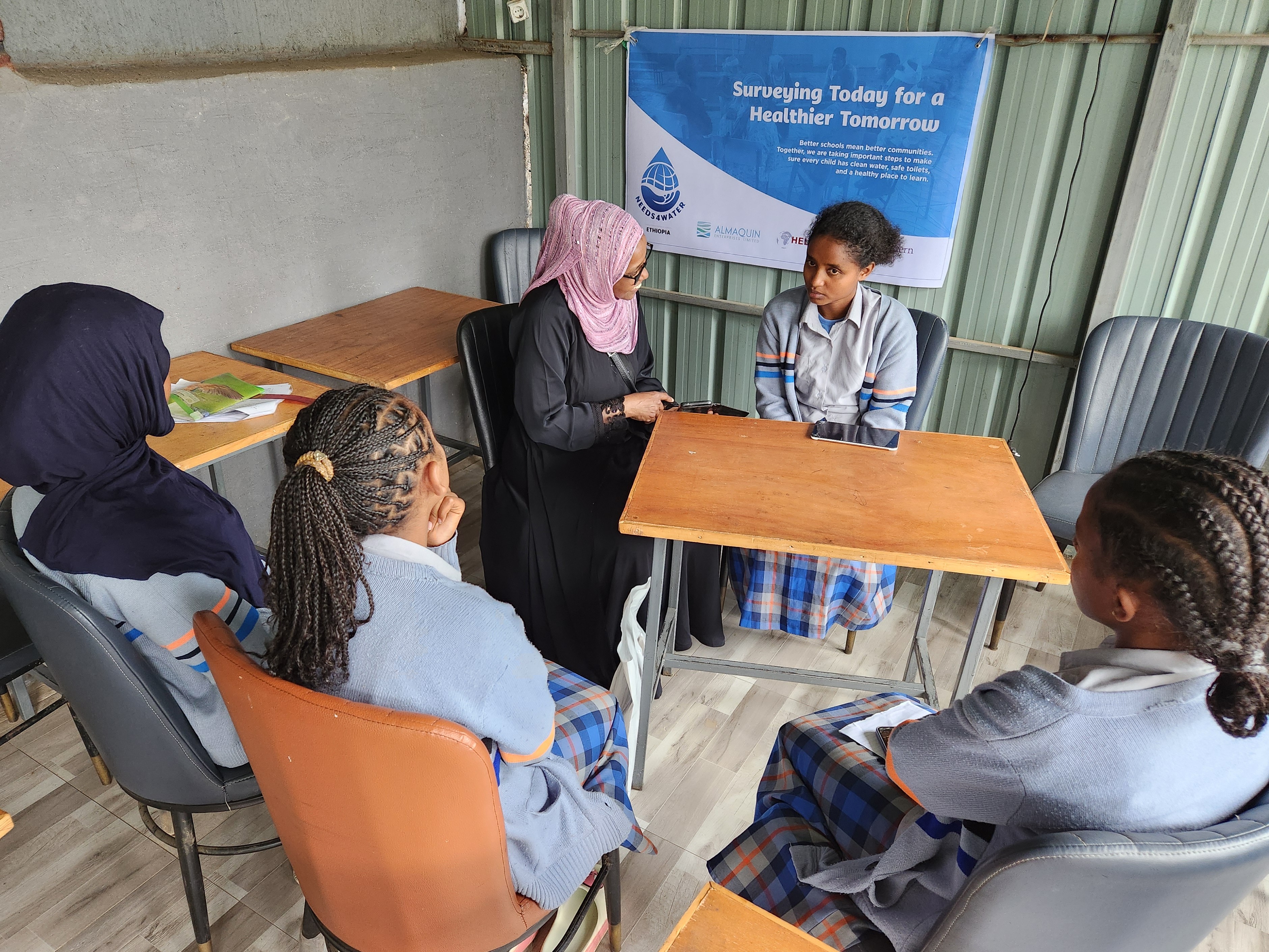
Etege Menen Girls Boarding Middle & Secondary School
At Etege Menen Girls Boarding School, Project 12 evaluated WASH conditions in a unique boarding setting with on-site garden and livestock, serving 617 students and 73 staff since its founding in 1931.
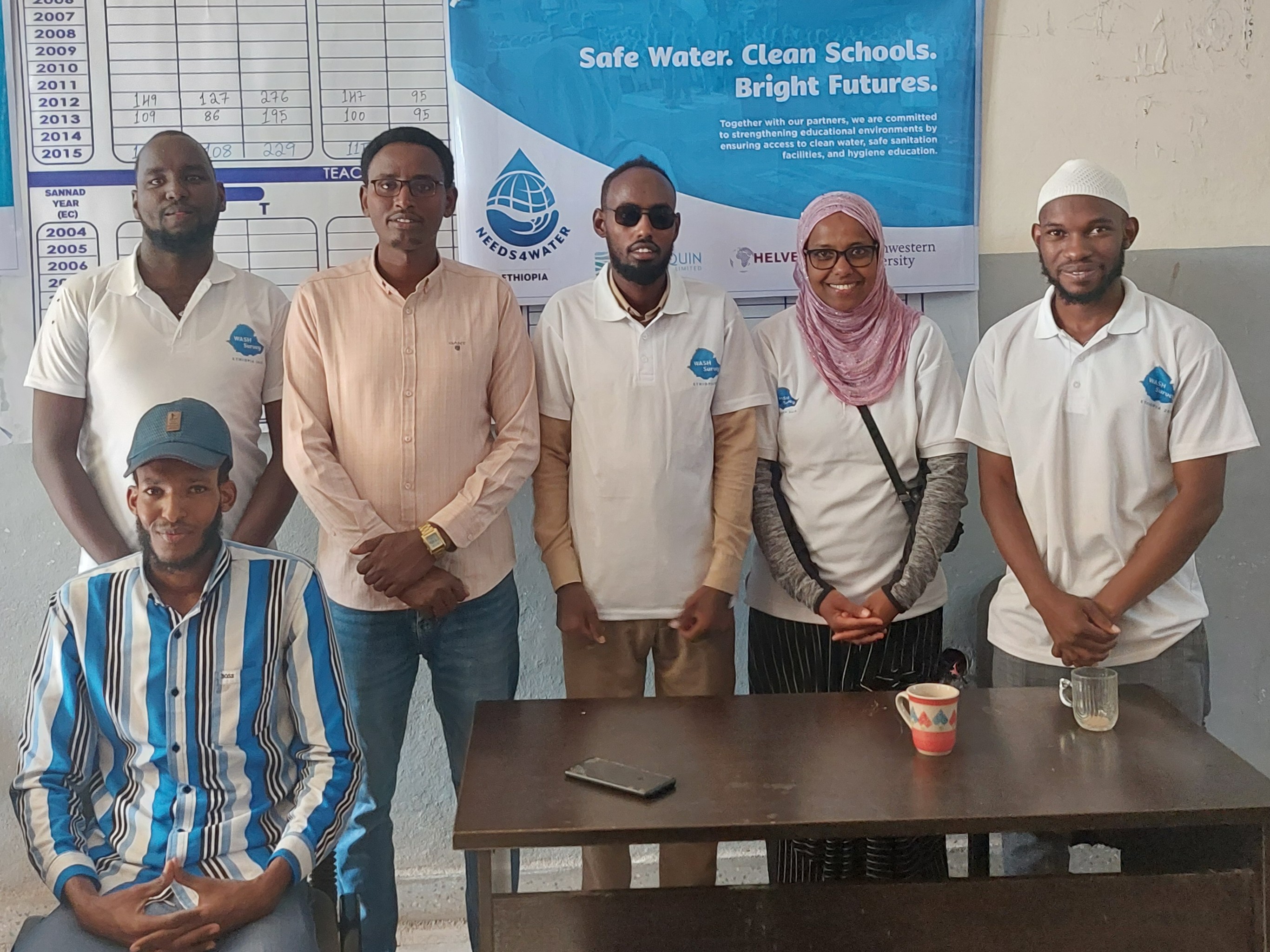
Jijiga Community Scondary School
At Jijiga Community Secondary School, Project 12 surveyed 1,111 students with help from Somali-speaking university volunteers and documented progress at a newly constructed school facility.
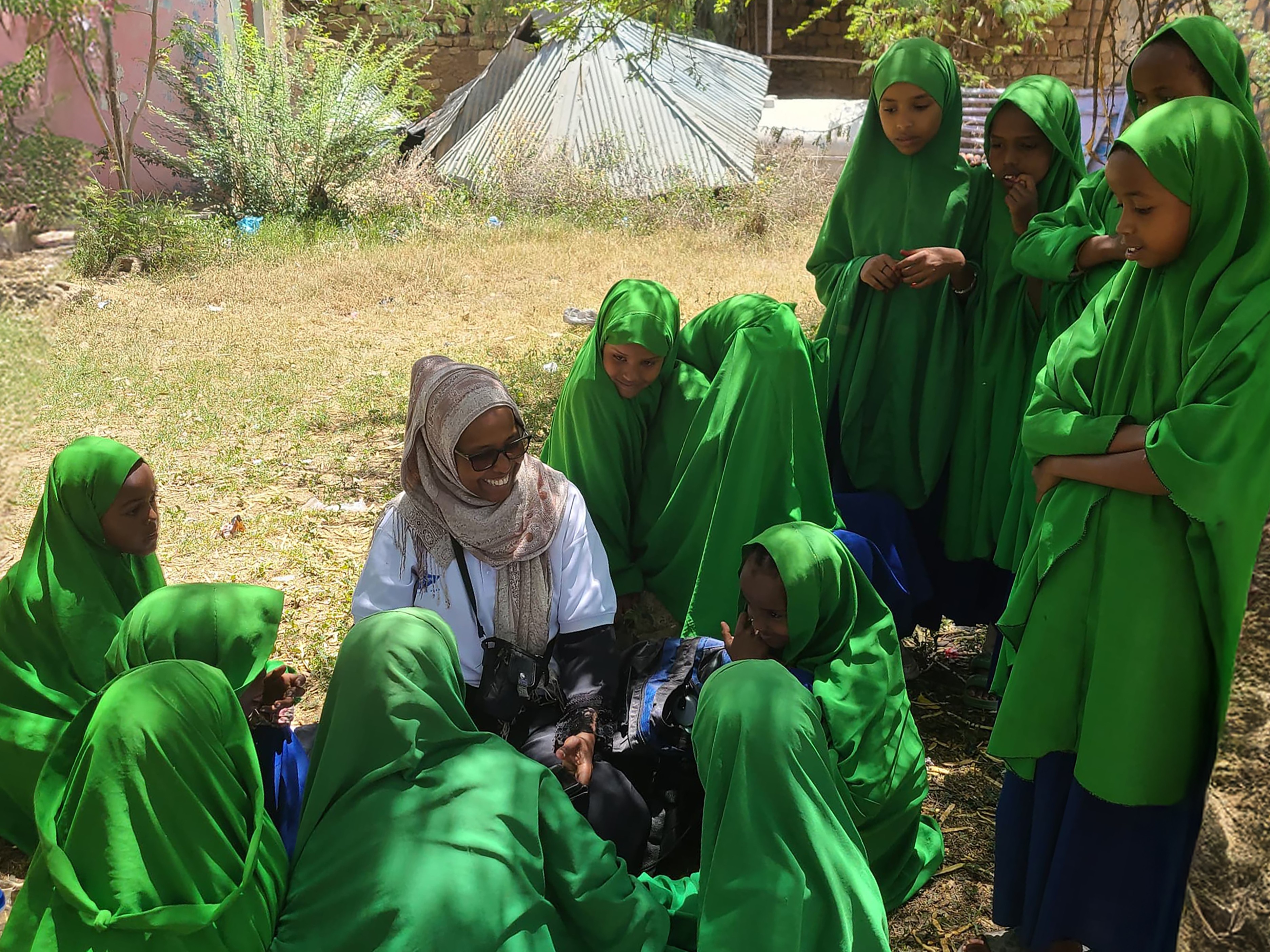
Hussein Gire Primary School
In Jijiga, Hussein Gire Primary faces water supply gaps and hygiene risks. Project 12 revealed contamination in containers, limited sanitation, and efforts by staff and students to cope.
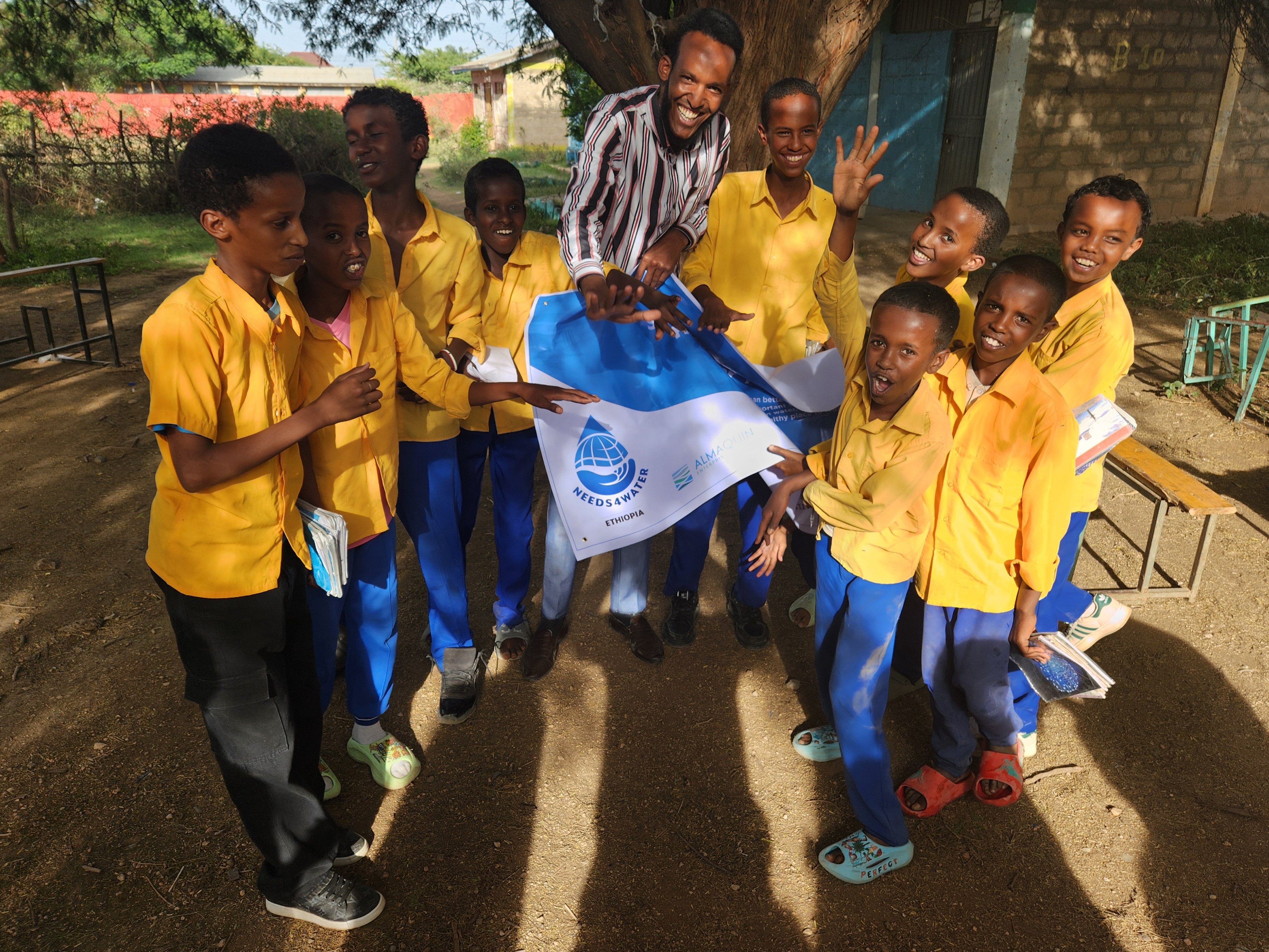
Ahmed Guray Secondary School
Without piped water, Ahmed Guray School relies on a rain-fed cistern and trucking. Project 12 found contamination, poor sanitation, and disruptions to learning due to inadequate water supply.
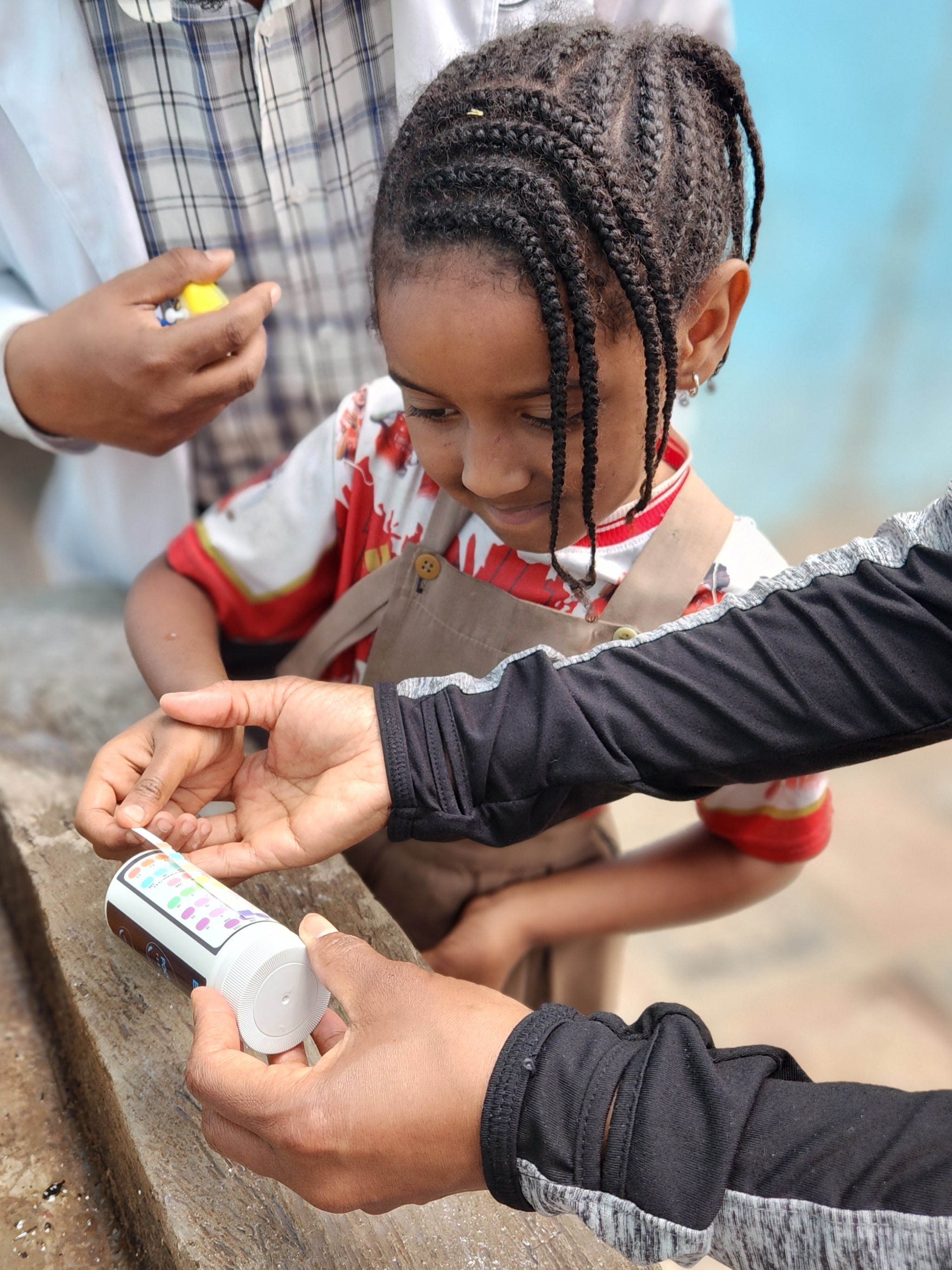
Time's Choice Academy
Frequent pump outages limit water access at Time’s Choice Academy, affecting meals and attendance. Project 12 found hygiene efforts in place but critical gaps in sanitation and reliability.
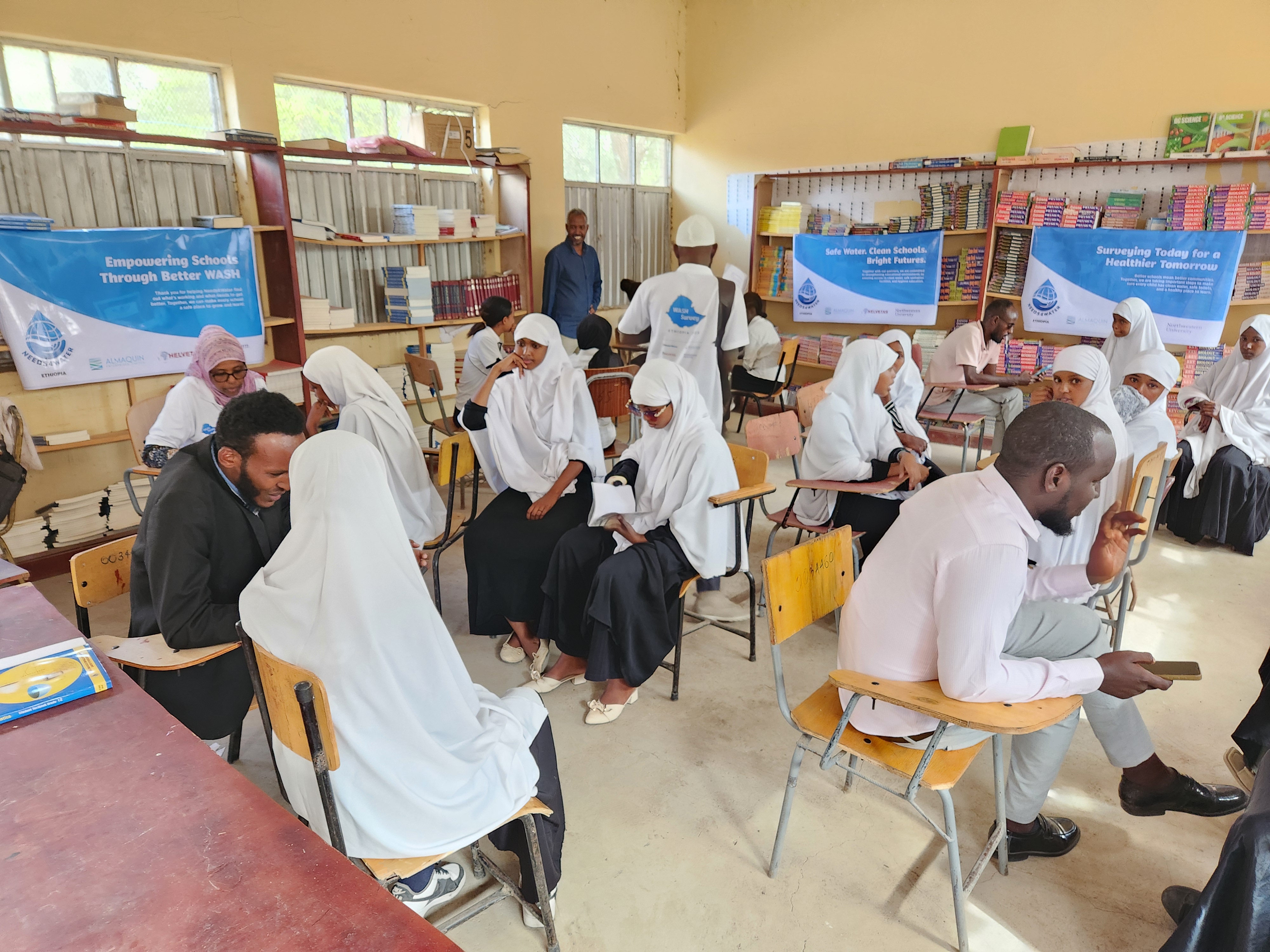
Sheikh Abdisalan Secondary School
At Sheikh Abdisalan, Project 12 found unsafe latrines and poor waste practices impacting 3,990 students, with girls pairing up for safety and water stored in jerry cans from the city supply.
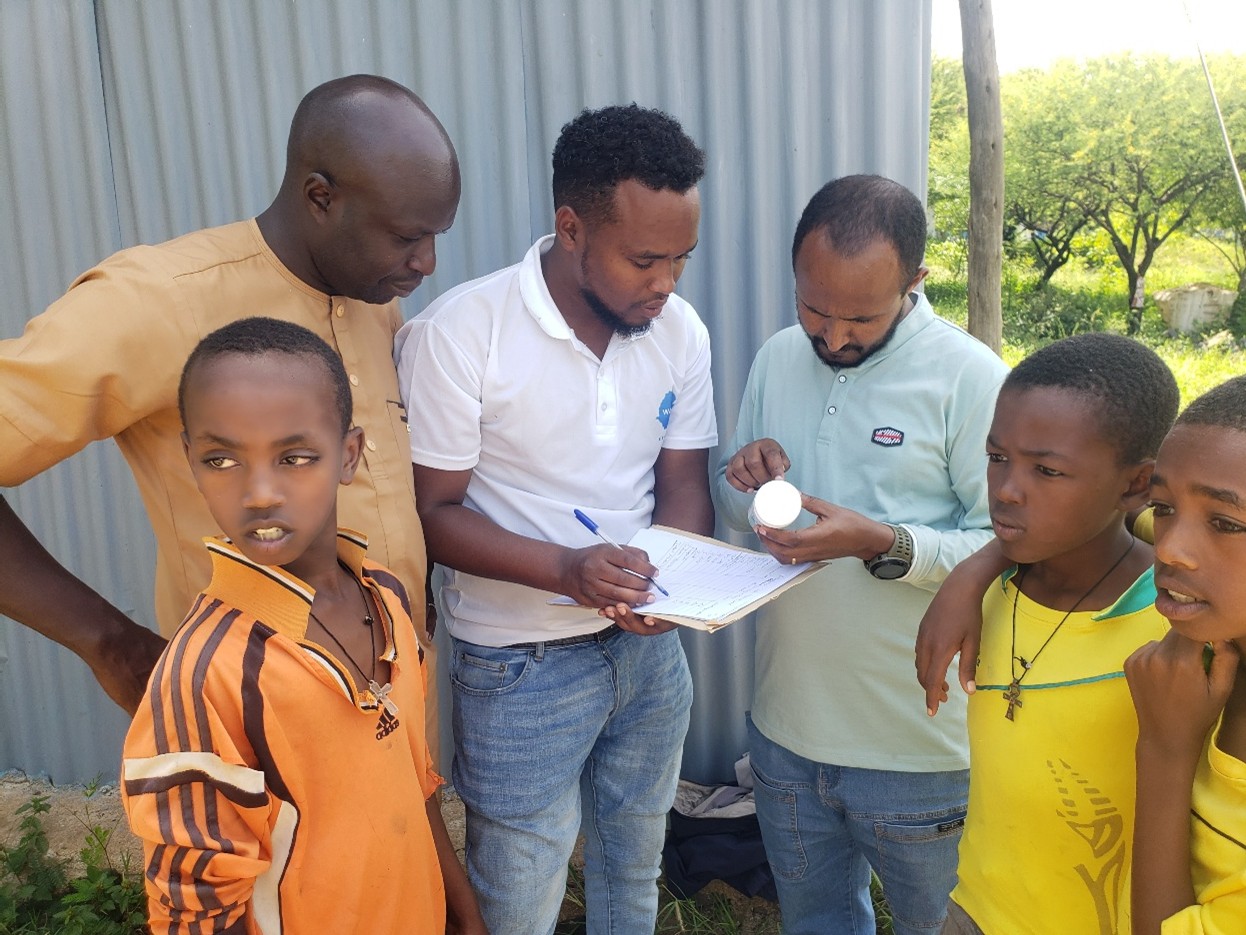
Yet Nebersh Primary School
In Arba Minch, Project 12 assessed WASH conditions for 1,486 students at Yetneberish Primary, identifying gaps in sanitation, hygiene access, and the need for stronger water system reliability.
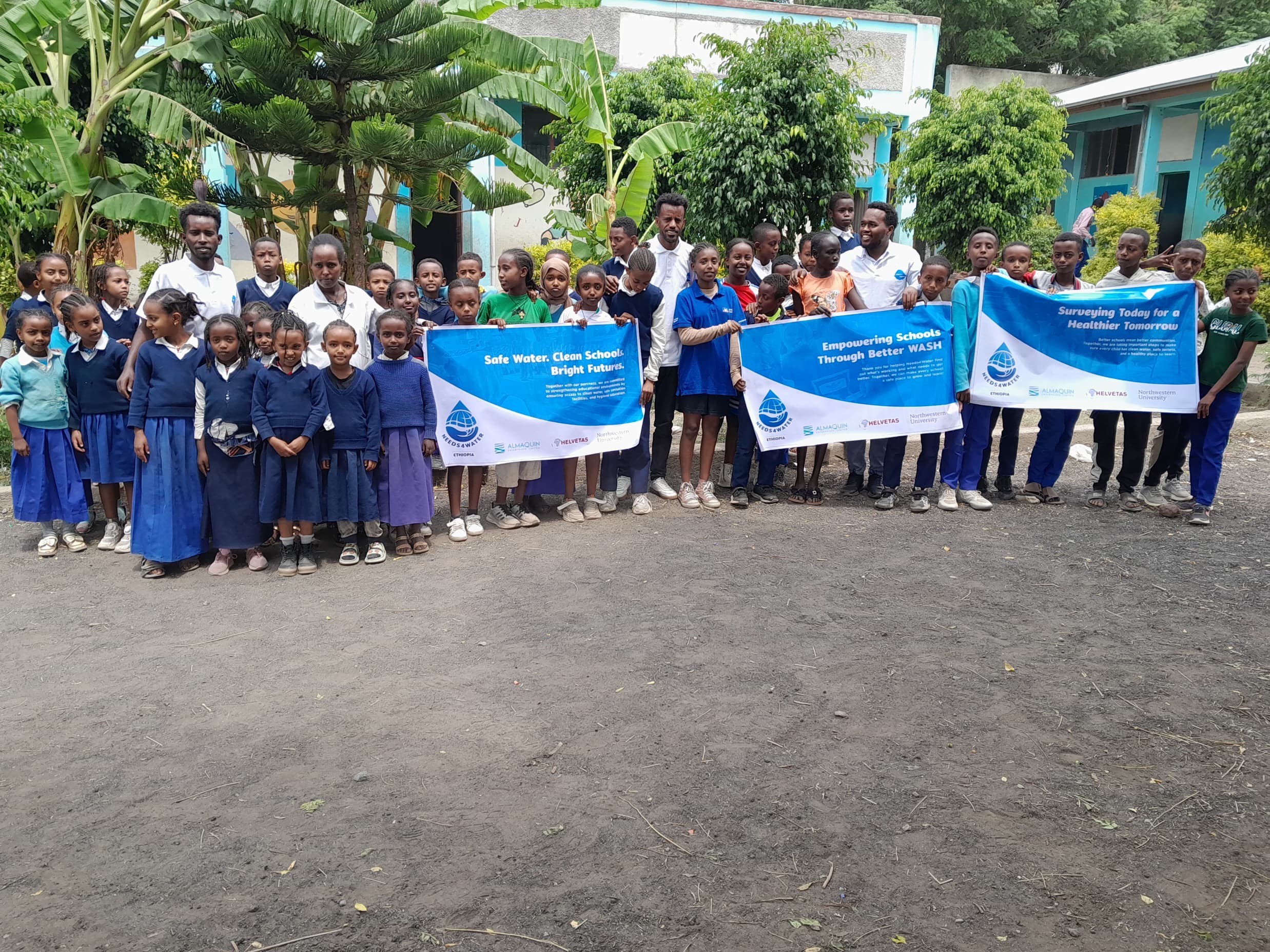
Gamo Bayra Boarding Secondary School
Project 12 assessed WASH conditions for 485 students at Gamo Bayra Boarding School near Arba Minch, identifying key needs in water access, sanitation, and boarding hygiene support.



